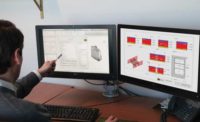Project Collaboration Software Is Too CostlyIf No One Shares
Dozens of software companies sell collaboration software that connects project stakeholders. But the software’s usefulness can be limited because people only share information with those they know and trust.
Think about it. A construction project is like an arranged marriage. You throw people together who have never met, put them in the pressure cooker we call a project, where the stakes are high, the pressure is tremendous, and the resources are limited. And then we expect them to be collaborative and communicative and share everything openly!
British Petroleum learned this difficult lesson about technology and collaboration. BP spent millions of dollars on knowledge and information sharing technology, but their employees still were not sharing their knowledge. BP finally realized that technology was not the answer. Instead, it cultivated great relationships among their employees, which provided a web of knowledge that was available anytime. As BP CIO John Cross, put it, “Since sharing knowledge is important only at the point and time when people need to solve a problem, the key to knowledge management is connecting people in a dialogue.”
Some technology may actually hinder connections and collaboration. I was talking to the president of a project management software company about this issue. Although the company has a great web-based software product that provides links for sharing information, some contractors still blame the system for the lack of communication on a project. This software company is starting to realize that sharing information is not about the technology. It’s about the relationships among the project stakeholders.
The first step toward great collaboration is relationships. You must establish trust and connection with all stakeholders first. When you create personal connections, the project stakeholders will seek advice and counsel from each other and create a true learning project.
Our firm is a consultancy that helps companies improve by fostering emotional intelligence within their ranks. We show companies how to build intra-company relationships among their employees through a process to help workers connect with themselves and each other.
We introduce the concept of emotional intelligence, how it can be measured, improved and how it relates to personal success, but also how team dynamics and project success relates to the physical well-being of individuals. We help team members set, and share their personal, professional and project goals and we show them how it all relates to the project process.
One of our tools is to get participants to keep “future diaries” that describe the accomplishments and project success they hope to achieve, planting subconscious goals that are always there.
By interweaving personal and professional goals and sharing them, the emotional intelligence development process breaks down barriers and creates emotional threads within the team.
If you cultivate the sharing of knowledge and innovative thinking, project stakeholders will contribute much more. This ultimately will contribute to increased innovation, better problem solving, enhanced productivity, high performing teams, and project success.

_ENRready.jpg?height=200&t=1737051881&width=200)
